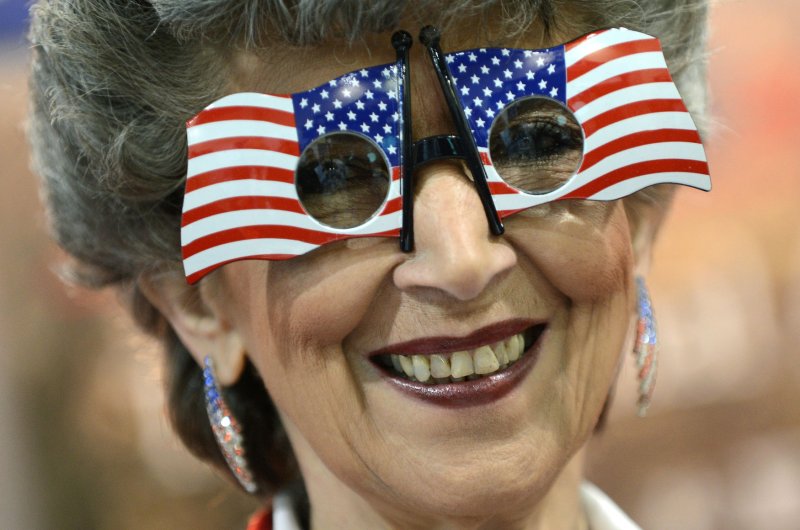Liberals report stronger desire for uniqueness than conservatives. UPI/Kevin Dietsch |
License Photo
NEW YORK, Nov. 20 (UPI) -- Liberals tend to underestimate how many people share their ideology, while conservatives tend to overestimate those who agree with them, U.S. researchers say.
Lead author Chadly Stern, a doctoral student at New York University's Department of Psychology; Tessa West, an assistant professor; and Peter Schmitt, an undergraduate student, recruited almost 300 hundred participants to complete an online survey.
The participants read political statements such as "In general, I support labor unions" and non-political statements such as "I enjoy coffee" and were asked to indicate whether they agreed or disagreed with each statement.
The study participants were also asked to indicate how many of the same political persuasion would support their attitudes -- a measure of perceived in-group consensus. Ideology was measured by asking people whether the description liberal, moderate, or conservative best applies to them.
The study, published in the journal Psychological Science, found liberals showed what the researchers call "truly false uniqueness," perceiving their beliefs as more divergent from the beliefs of other liberals than they actually were. On the other hand, moderates and conservatives, showed evidence of "truly false consensus," perceiving their beliefs to be more similar to those of other members of their political group than they actually were.
A second study suggested the relationship is driven by participants' desire to feel unique: Liberals reported a stronger desire for uniqueness than did moderates or conservatives.
Surprisingly, these trends emerged among non-political judgments, such as preference for coffee: Liberals believed their preferences were more different from those of other liberals than they actually were, while conservatives believed their preferences were more similar to those of other conservatives than they actually were.
"Liberal social movements might struggle to develop solidarity and formulate shared goals within their ranks, both because liberals want to maintain unique beliefs and because they underestimate the amount of agreement among their members," Stern explains. "Conservative social movements might initially capitalize on perceiving agreement to galvanize their ranks, but their inaccurate perceptions could impair group progress when actual agreement is necessary."















